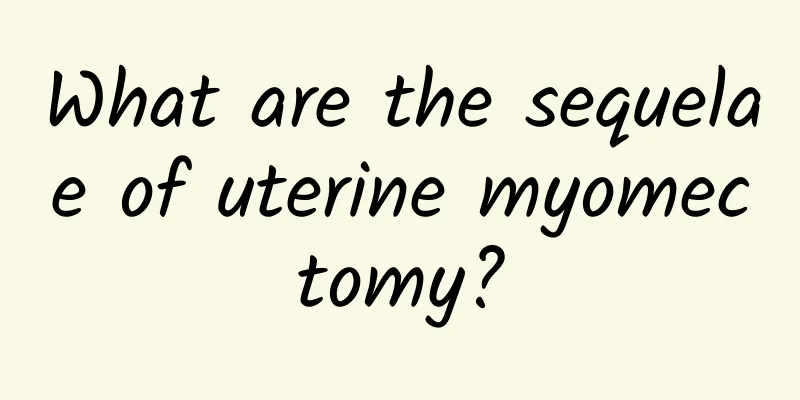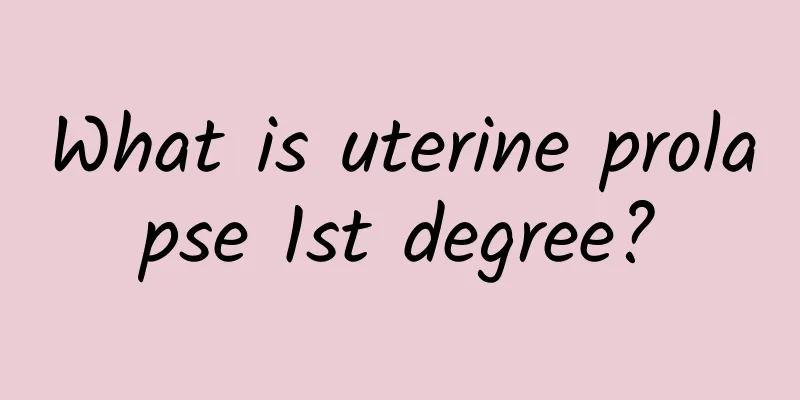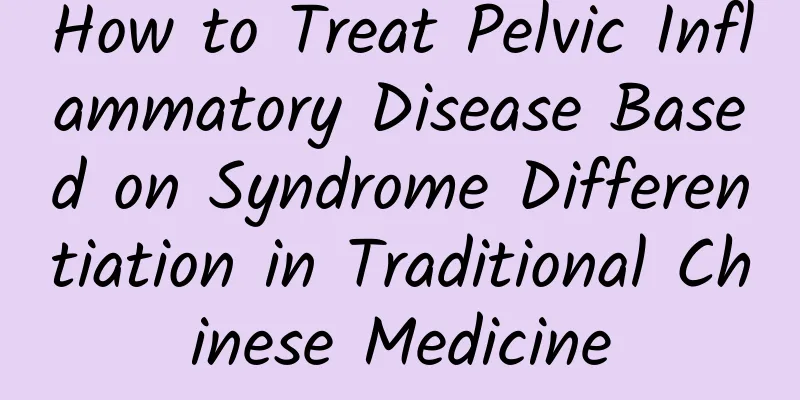What are the sequelae of uterine myomectomy?

|
Sequelae of uterine fibroid removal! As a common gynecological disease, uterine fibroids have an increasing incidence year by year, attracting more and more attention from women, because it often occurs in women over 35-60 years old, with no obvious symptoms, and many women should not pay attention to it, so when they have to do surgery, they begin to worry about what sequelae there will be after surgery for uterine fibroids? Today we will look at this issue. A comprehensive look at the sequelae of hysteromy! The sequelae of hysterectomy mainly include physiological and psychological effects. Physiologically, hysterectomy not only destroys the endocrine dynamic balance between the premenopausal uterus and ovaries, but also reduces ovarian function. Since a considerable part of the ovarian blood supply comes from the ascending branch of the uterine artery, although premenopausal women undergo hysterectomy to preserve ovarian tissue as much as possible, the ligation of nearby blood vessels will still affect the ovarian blood, thereby reducing ovarian function, causing a decrease in serum levels, and a lack of a gradual adaptation process, which can significantly advance menopausal symptoms, rough and dull skin, etc. The sequelae of hysteromyomectomy include vaginal bleeding in women. After the removal of intramural fibroids or submucosal hysteromyoma, there will be wounds on the uterine wall, which will cause a small amount of vaginal bleeding after hysteromyomectomy. Generally, it does not exceed 10 days, which is normal, but if it lasts more than half a month, you should go to the hospital for examination. In addition, for patients who have undergone complete hysterectomy, a small amount of yellow discharge or bloody discharge may appear within 10-15 days, which can be observed for a few days and will naturally subside. Don't worry about these normal symptoms after hysterectomy. But if there is purulent discharge after hysterectomy, it may be because of infection or vaginitis at the stump of the vaginal incision. You need to go to a regular hospital for diagnosis and treatment, find out the cause, and treat it in time. The sequelae of hysterectomy seriously affect women's physical and mental health. Therefore, women should make careful decisions before having their uterus removed. Women who have had their uterus removed should not be too nervous. They should adjust their mentality in time after surgery. The sequelae of hysteromy resection also include the impact on women's psychology. For example, women's psychological changes will affect the quality of life of female couples after surgery, such as fear of surgical pain, anxiety about menstruation after hysterectomy, inability to have children, and worry about her husband's change of interest in her, loss of sexual function, premature aging, male changes, etc. Some patients will seriously affect the harmony of their married life and family life, work, depression, anxiety and other mental symptoms and psychological disorders. |
>>: Indications for myomectomy Dietary conditioning methods for myomectomy
Recommend
How to treat chocolate cyst
There are two treatment methods for chocolate cys...
Compare weight loss surgeries and evaluate carefully to enjoy good health (Part 1)
First of all, it must be emphasized that the purp...
How to relieve menstrual cramps
How to relieve dysmenorrhea? Dysmenorrhea may be ...
What is the difference between uterine effusion and pelvic effusion?
Both uterine effusion and pelvic effusion belong ...
How much does painless abortion surgery cost?
The cost of painless abortion surgery usually ran...
What are the drugs for treating candidal vaginitis?
Vaginitis is a very common gynecological inflamma...
Will congenital absence of vagina affect the sexual life of couples?
Will congenital absence of vagina have an impact ...
What is the cause of multiple uterine fibroids? How to treat multiple uterine fibroids?
Uterine fibroids are divided into two types: sing...
Drinking warm water aids digestion and helps lose weight, and these 6 benefits are hard to hide! Xiao S and Jolin Tsai get up early and drink a cup of warm water to maintain good skin
As people age, the functions of their spleen and ...
A good figure starts with cooking your own slimming meals! Braised pork with ginger juice, adding mushrooms for more nutrition
Many years ago, my husband and I only worked and ...
Is there a secret to eliminating visceral abdominal fat? Study: Brisk walking three times a week can reduce insulin resistance and lose visceral fat
Do you always have a "swim ring" around...
How to tell if you have a chocolate cyst
Chocolate cyst is a kind of disease that people a...
Stewardess loves to eat French fries and braised pork rice, "constipation-type obesity"! Nutritionist's 4 tips helped her lose 6 kg quickly
Rome was not built in a day, and neither is obesi...
What should be paid attention to during the treatment of cervical warts
We often hear about cervical warts in our daily l...
Can premenstrual periods cause ovarian cysts?
Can premenstrual periods cause ovarian cysts? 1. ...









